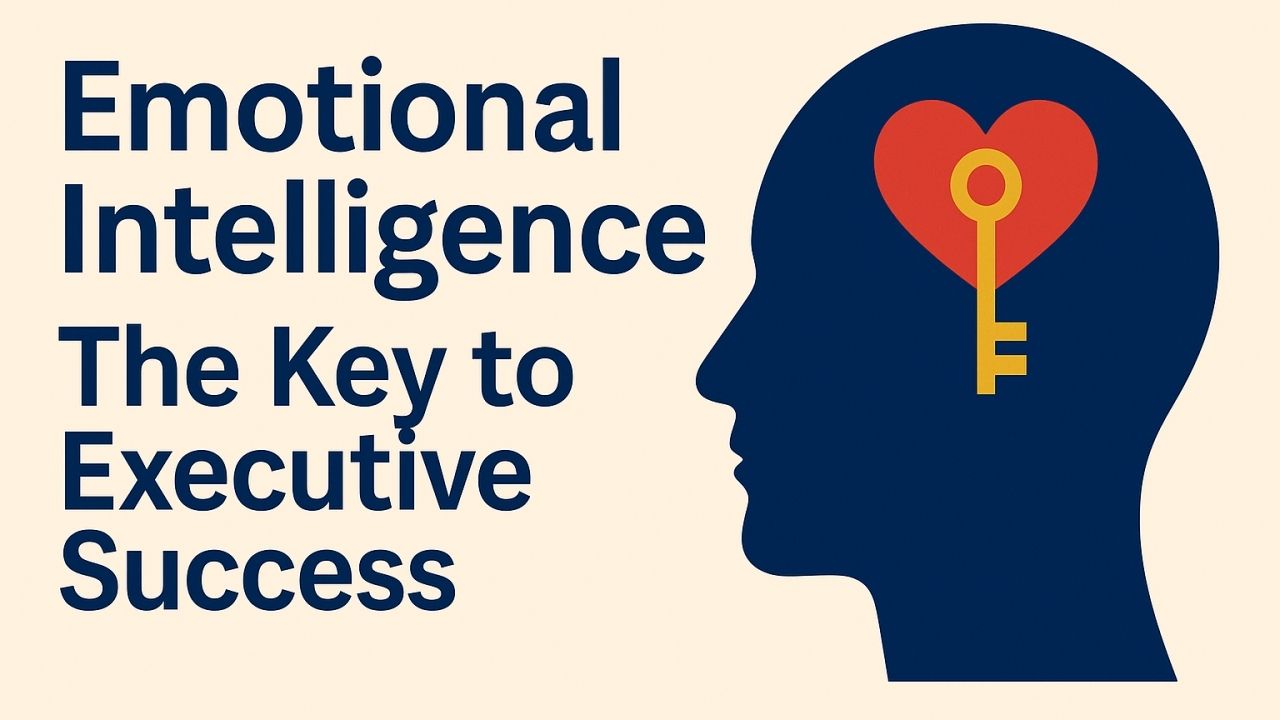Executive Hiring: Reducing the Risk of Mis-Hires

Most executives don’t fail because of missing technical skills. They don’t fail because they can’t read a balance sheet, set strategy, or manage operations.
They fail because of something far less obvious: emotional intelligence.
It’s not the smartest candidate who always succeeds. It’s the one who can stay composed under pressure, inspire followership, make sound decisions when the stakes are high, and maintain trust during change. Those are the qualities that separate a resume from a real leader.
And they’re also the qualities most recruiters never measure.
The Real Cost of Mis-Hiring an Executive
We’ve all seen it. A candidate looks flawless on paper: pedigree schools, impressive titles, stellar results. The client is excited, the interviews go smoothly, and the hire is made with confidence.
But then reality sets in.
- The new leader shuts down in a crisis instead of stepping up.
- They can’t adapt when their assumptions are wrong.
- They erode trust by overreacting or under-communicating.
- Or they simply don’t build the kind of relationships that keep teams engaged.
Within months, the company realizes they don’t have the leader they thought they were getting. By the 12-to-18 month mark, nearly 40% of new executives either quit, fail, or are pushed out. That’s not just a setback. It’s an expensive, destabilizing event that can ripple through the entire organization.
Where Most Search Processes Stop
Traditional executive search is built around three pillars:
- Skills and experience (Do they have the background?)
- Track record (Have they delivered results before?)
- Cultural alignment (Do they “fit” the company?)
All three matter. But none of them reliably predict how a leader will behave under pressure.
Cultural fit often gets reduced to a “gut feel.” Skills and track record are easy to verify, but they don’t reveal how someone will handle the messy, unpredictable, human side of leadership.
That’s where most search processes stop.
Where I Go Further
When I evaluate executive candidates, I look at the same things every recruiter does. But I don’t stop there.
I also incorporate emotional intelligence assessment into the process.
This isn’t about personality quizzes or adding extra hoops for candidates. It’s about asking targeted, behavioral questions that shine a light on how leaders operate when things aren’t going smoothly.
Questions like:
- “Tell me about your most significant professional failure. What did you learn from it?”
- “When you faced a crisis, what did you do in the first three hours?”
- “Would you rather be well-liked or well-respected? Why?”
- “Tell me about a time when what you thought was reality turned out to be the opposite. How did you adapt?”
The way a candidate answers — and the self-awareness, judgment, and composure they demonstrate — tells me volumes about whether they can thrive long term.
The Five Areas That Matter Most
The framework I use comes from proven emotional intelligence research. It centers around five dimensions that, taken together, predict whether a leader can sustain success:
- Self-Perception – How well do they know themselves? Can they own mistakes and grow from them?
- Self-Expression – Can they communicate directly and clearly, especially when the message is hard to deliver?
- Interpersonal Skills – Do they build trust and show empathy without sacrificing accountability?
- Decision-Making – How do they test assumptions and manage judgment under pressure?
- Stress Management – Can they stay composed, flexible, and optimistic through turbulence?
When a leader demonstrates strength across these areas, the odds of long-term success skyrocket.
Why Clients Care
For clients, this extra layer of screening changes everything.
Instead of simply getting a short list of qualified resumes, they get confidence. They know I’ve already tested how each candidate is likely to show up in the moments that matter most.
It reduces risk. It saves time. And it helps ensure that the person they bring on isn’t just going to survive the job. They’re going to thrive in it.
One CEO put it perfectly after I walked him through this approach: “You’re protecting me from the mistake I can’t afford to make.”
A Practical Differentiator
I don’t position emotional intelligence assessment as an academic exercise. I position it as risk management.
Because that’s exactly what it is.
When clients hire an executive, they’re making a high-stakes investment. My job is to protect that investment by screening for the factors that derail leaders most often.
That’s what differentiates me from other recruiters. They present resumes. I present leaders who can withstand pressure, inspire trust, and drive results.
The Bottom Line
Executive hiring is too important to leave to resumes and references. Technical skills and experience matter, but they’re just the starting point.
The real differentiator is emotional intelligence.
- Can this leader stay composed when the stakes are high?
- Can they adapt when assumptions fail?
- Can they build trust while driving results?
That’s what I screen for. And that’s what helps my clients avoid costly mistakes, strengthen their leadership bench, and set their companies up for sustainable success.
Because at the end of the day, hiring isn’t about filling a seat. It’s about choosing the leader who can truly lead.